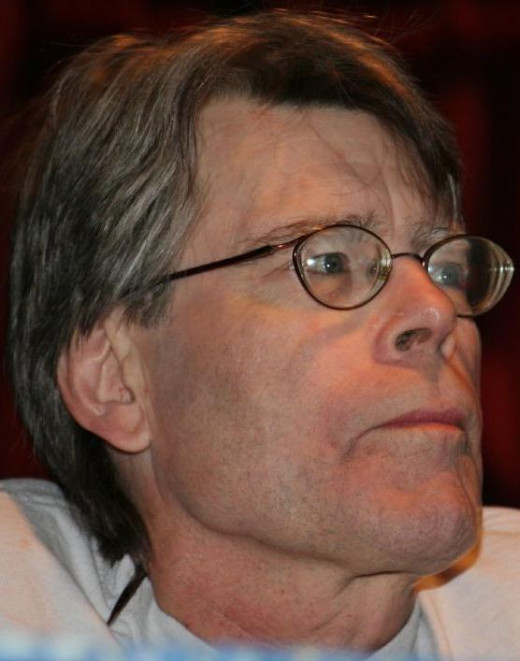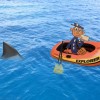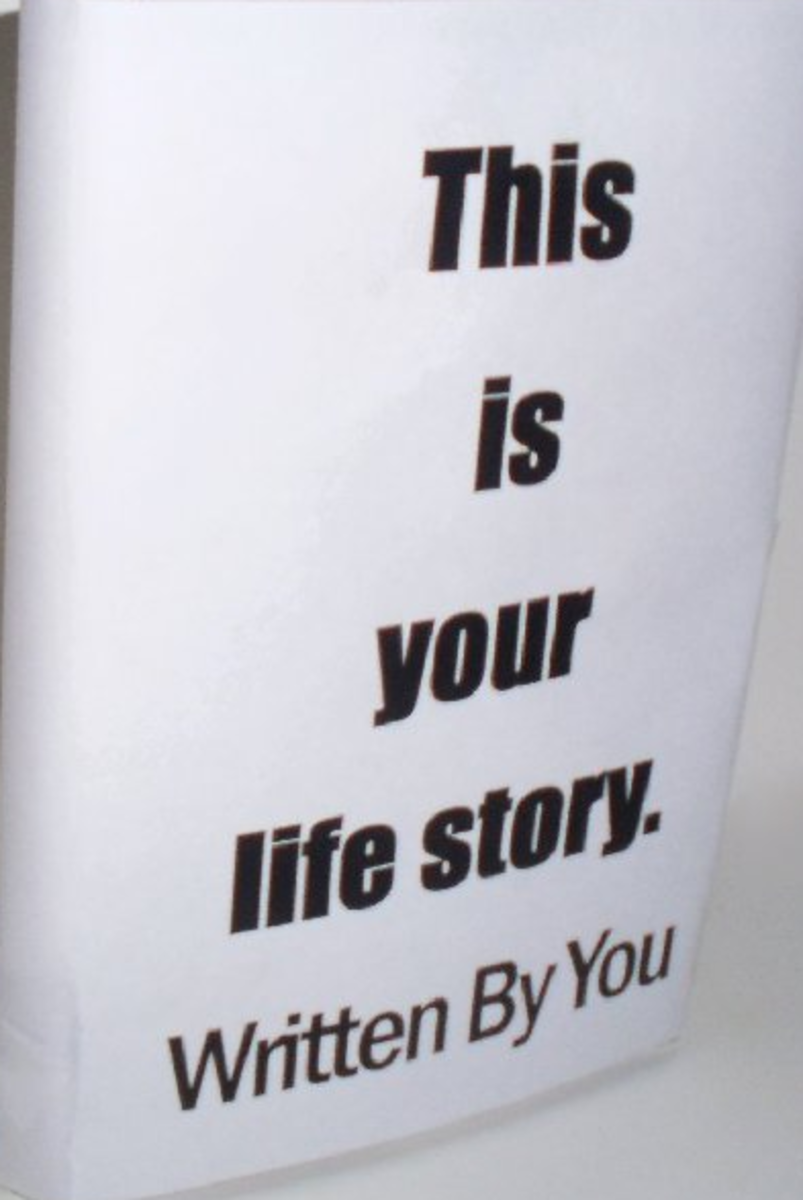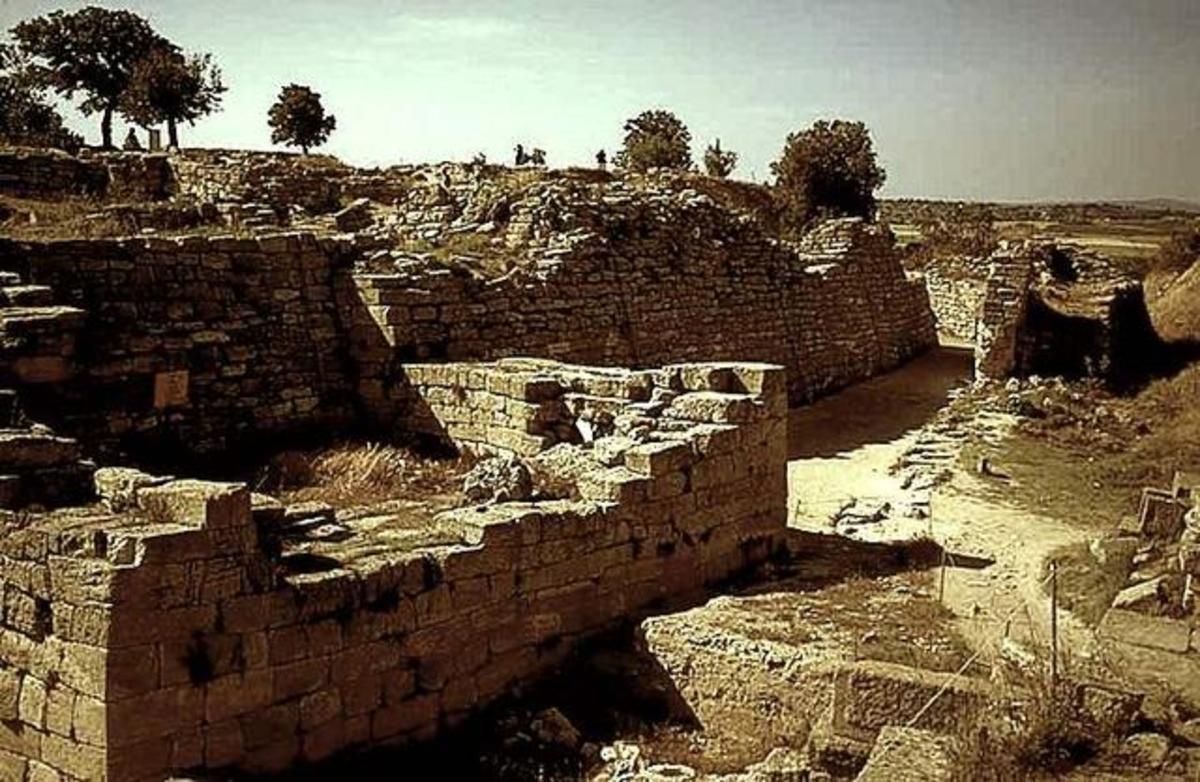What Writing Technique Works the Best - Are You a Fiction Engineer or Archaeologist?

To modify a quote from Thomas Edison, some writers work from inspiration, others from pure perspiration. Some will get up from behind the word processor and take a walk down the beach, where they wait patiently for an idea to blow in on the ocean air, while others slave away all night, hovering like homicide detectives over a maze of bulletin board diagrams full of sticky notes and lines of string connecting characters and plot lines. I don't think either technique is better or worse - I have read great novels by authors who employ both methods. Each writer must come to grips with what works best for them, to learn the meaning of the ancient Greek maxim "know thyself." Using my approach might cause you to write a pile of spontaneous crap that will likely spontaneously combust in your face, whereas if I use your process I am likely to give up the endeavor as pure, tedious, drudgery - to abandon a good idea before it ever lifts off from the launch pad of some boring outline.
The purpose of this article, therefore, is not to be so presumptuous as to tell you how to write. The purpose of this article is to urge you not to be afraid to create your stories in your own way, and to impart the liberating knowledge that you don't have to be a slave to writer's guidelines, manuals, and workshops. This is not just me, an unpublished, unqualified writer talking, I'm quoting this advice from the pros. If you have the gift of storytelling inside then only you will know how to get your stories out - whether you choose to be a writing engineer that draws an intricate blueprint and sticks to it religiously, a writing archaeologist that starts digging into your imagination without really knowing what you are going to uncover, or a healthy combination of both.

Engineers
The writing world seems to be divided into two camps, which I will loosely label engineers and archaeologists. These sides are not mutually exclusive, however, and there are many authors who fall into the fuzzy area in between. The writers in each group are not snobbish and xenophobic either; gathering in inimically hostile opposing sets; the writing equivalent of the Crips and Bloods, but will befriend and sometimes socialize together, even if they do shake their heads skeptically at one another while comparing notes on their craft.
The Engineers are a fussy bunch that don't like to leave much to chance or improvisation. Before they turn the ignition on the Word Processor they already have the GPS programmed so there will be no deviations from the route. The reason they plan so intricately is because they are as afraid of plot holes as you are of potholes on a slippery highway. Fiction engineers are painfully aware that bouncing off a deadly plot hole can send a story careening off of the road, over a cliff, and into some dark, forgotten abyss beneath.
Joseph Finder, the bestselling author of High Crimes and other thrillers, has written an interesting article on the diversity of fiction writing in which he describes the techniques of both circles. Citing examples of fiction engineers, he states "Ask John Grisham, and he’ll tell you he can’t write a novel without doing an outline first. He does a 50-page outline with a paragraph or two about each chapter, setting out the major events and plot points. He spends more time on the outline than on the writing. Robert Ludlum once told me the same thing — his outlines were often as long as 100 or 150 pages!"
Perhaps the most well known example of the fiction engineer school is J.K. Rowling, the author of the overwhelmingly successful Harry Potter series. Ms. Rowling is the first billionaire fiction writer, so I think it's safe to say she knows how to write novels that people will read. I read all seven Harry Potter books, often kidnapping them from my children while they were sleeping. On the Now Novel blog, five writing tips from this immensely popular author are described, and one of these tips involves the painstaking planning process she went through to create this series.
"Instead of diving right into line 1, paragraph 1, J.K. Rowling advises taking the time to plan out the world your books will live in. She took five years to create and develop every last detail of the Harry Potter world, right down to how the Wizards and Muggles interacted (and the word Muggles, to begin with!) what the education was like, how magic helped in every day life and how the wizarding world of government worked. She also plotted out all the events of the seven books before she started writing the first." Elsewhere, the Harry Potter creator adds "The five years I spent on Harry Potter and the Philosopher's Stone were spent constructing The Rules. I had to lay down all my parameters. The most important thing to decide when you're creating a fantasy world is what the characters CAN’T do. . . ."

Archaeologists
Unlike Engineer Rowling with her meticulous pre-writing preparation, Fiction Archaeologists don't like planning at all. They do it sometimes, but only inside of their heads, and then only grudgingly. They think too much planning mucks up the gears of a story and sterilizes the passion away. They're dying to know what's going to happen next in a story as much as their readers are, and they don't want any spoilers. The reason why their stories often have so many scary dark turns is because they are taking us places they've never been before either.
Describing the writing archaeologist Harlan Coben, bestselling author of The Stranger and other thrillers, Joseph Finder says "...he’ll tell you no way, he doesn’t outline, but he does know the ending before he starts. He says, “It’s like driving from New Jersey to California. I may go Route 60, I may go via the Straits of Magellan or stop over in Tokyo . . . but I’ll end up in California.”
A very crude mental map carved into the gray matter is all the fiction archaeologist needs to navigate. Perhaps the best known practitioner of fiction archaeology is legendary bestselling horror writer Stephen King, who invented the term. This incomparably imaginative novelist tells us that "Stories are found things, like fossils in the ground ... Stories are relics, part of an undiscovered pre-existing world. Writers should be like archaeologists, excavating for as much of the story as they can find."
King continues: “When, during the course of an interview for The New Yorker, I told the interviewer (Mark Singer) that I believed stories are found things, like fossils in the ground, he said that he didn’t believe me. I replied that that was fine, as long as he believed that I believe it. And I do. Stories aren’t souvenir tee-shirts or Game Boys. Stories are relics, part of an undiscovered pre-existing world. The writer’s job is to use the tools in his or her toolbox to get as much of each one out of the ground intact as possible. Sometimes the fossil you uncover is small; a seashell. Sometimes it’s enormous, a Tyrannosaurus Rex with all the gigantic ribs and grinning teeth. Either way, short story or thousand page whopper of a novel, the techniques of excavation remain basically the same.”
The master of horror adds: "I also have to say that -- for me -- writing from an outline is no fun. I want to be surprised by what happens. I want my characters to develop in ways I didn't expect. I don't want to know how the story will end until it does. As Raymond Chandler believed, "the best way to stop the reader from guessing the end of a story was not to know how it ended yourself.""
Furthermore, he goes on to say that "I won't try to convince you that I've never plotted any more than I'd try to convince you that I've never told a lie, but I do both as infrequently as possible. I distrust plot for two reasons: first, because our lives are largely plotless, even when you add in all our reasonable precautions and careful planning; and second, because I believe plotting and the spontaneity of real creation aren't compatible...These were situations which occurred to me - while showering, while driving, while taking my daily walk - and which I eventually turned into books. In no case were they plotted, not even to the extent of a single note jotted on a single piece of scrap paper."
When you collect marine animals there are certain flat worms so delicate that they are almost impossible to capture whole, for they break and tatter under the touch. You must let them ooze and crawl of their own will onto a knife blade and then lift them gently into your bottle of sea water. And perhaps that might be the way to write this book-to open the page and to let the stories crawl in by themselves.
— John Steinbeck - Cannery Row
Conclusion - My Philosophy and Why it Doesn't Have to Be Yours
That beautiful quote from Steinbeck pretty much wraps up my own philosophy in a bottle full of seawater, and is what inspired me to write this. Like Stephen King, I try to be a writing archaeologist, although I do scribble down the random ideas that pop into my head; because if I don't my sun baked, geriatric mind is apt to forget them. I'm too attention deficit to sit around and plan for exhausting long periods, however. Like Harlan Coben, I know where I'm going when I start the trip but I don't know exactly how to get there. I have a map but it's one of those large print maps for the visually impaired that don't have very many details on it, and I don't like to look at it while I'm driving the writing car. Instead, when I'm writing I often look out the window and describe what I'm seeing there. Sometimes when I'm distracted this way I crash through the roadside barrier and cut a new path. This keeps things interesting, and it keeps them fun, which is important because I want to be entertained by the story I'm writing too, as much as my readers hopefully will be.
I'm not saying that writing shouldn't also be work - I'm just saying that it should be fun work. Otherwise, if I'm in it for the work alone I can get a minimum wage part time job that certainly pays me more that the 11 dollars the miserly Hub Pages sweat shop contributes to my bank account every month. For me and my limited attention span, outlining and journal writing and character sketches are too much like grunt work, and make my arthritic hands ache too.
This doesn't mean it's wrong to be a fiction engineer, and that you engineers don't tell some pretty damn good stories. It's possible you are highly organized and keenly focused individuals with unencumbered handwriting joints that like to keep one eye on the map when you're driving so you won't steer off onto an unknown road, like I do quite frequently. In that case, detailed outlining might be just your thing. You might get a kick out of spending years creating intricately elaborate worlds like those of J.K. Rowling or J.R.R Tolkien before you ever punch the words Chapter 1 into the proverbial typewriter.
"Know Thyself," is the key to writing success. Don't let others tell you that you have to act like an engineer when you flunked math and drafting because you were sleeping in the back of the classroom. On the other hand, don't let Stephen King or anyone else convince you that only fiction archaeology will work, even though you don't the ass end of a shovel and you like to use your toothbrush for brushing your teeth; not for delicately scraping away the loose dirt around the delicate dinosaur bones in your tale. Find your own process, or find that happy medium that keeps your writing lively while you are sitting at the keyboard, because no matter whether you are a Fiction Engineer or Archaeologist; if you don't enjoy what you are doing, chances are your readers won't either.
Identify Yourself!
What kind of fiction writer do you consider yourself to be?
The King Speaks on Writing
Writers on Writing
- Stephen King: How to write | Books | The Guardian
In our final extract from his new book, On Writing, Stephen King reveals six key rules for writing a bestseller. Take note, as this is your chance to have a story published in the paperback version and to meet the master storyteller himself. - Stephen King’s Top 20 Rules For Writers — Barnes & Noble Reads
Stephen King's books have sold over 350 million copies. Like them or loathe them, you have to admit that's impressive. King's manual On Writing reveals that - Stephen King On How To Write - Business Insider
Timeless advice from bestselling author Stephen King on how to be an excellent writer. - Writing Tips from J.K. Rowling | Now Novel
- Outline or Not? | Joseph Finder
Okay, you’ve finally decided to sit down and write a thriller. As Robert Redford asked in the last line of The Candidate: “Now what?” Outline or not? This









